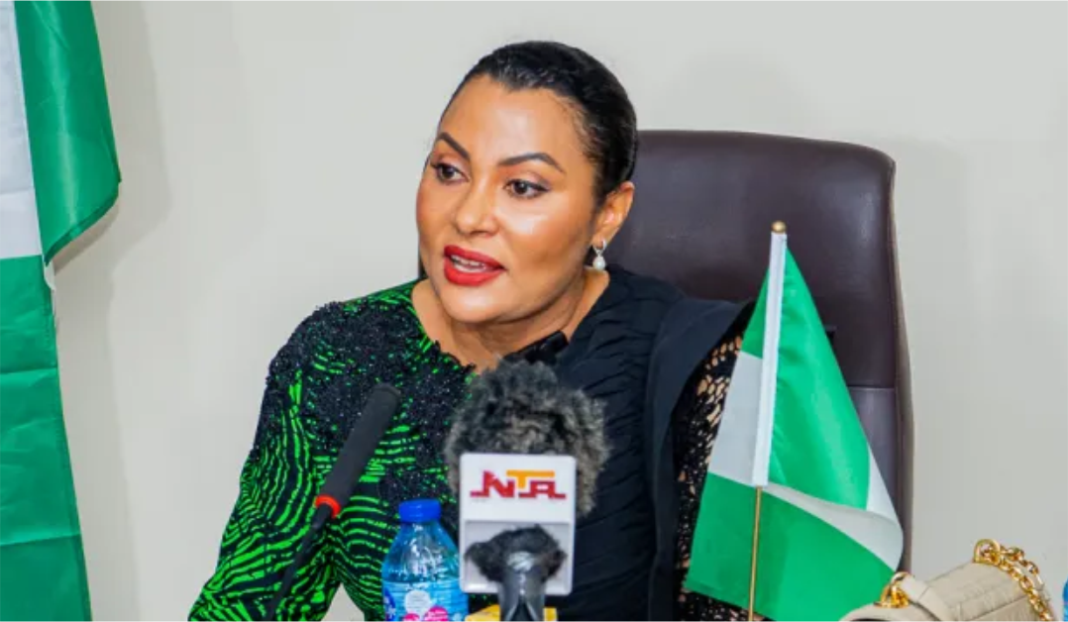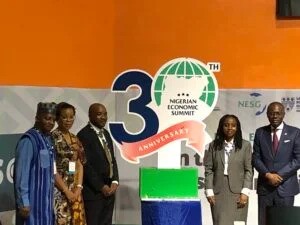News
Modular Refineries: CORAN seeks more investment in Nigeria
MR Emmanuel Iheanacho, the Chairman, Board of Trustees of Crude Oil Refiners Association of Nigeria (CORAN), has called for encouragement for grater investment in the establishment of modular refeneries in Nigeria.
This will be a step to improving the country’s oil and gas downstream sector, he said.
Iheanacho told the reporters on Friday in Lagos that having efficient crude oil refining capacity in modular refineries would address a core energy need to support transportation and businesses that require energy for their daily operations.
Making an analogy with the United States of America, Iheanacho said: “Modular refineries are a logical way to go. Let me start by comparing ourselves to America for instance.
“America is a huge country; it is about one and a half times the population of Nigeria. It has 139 fully functional refineries. And Nigeria has four refineries that are not working.
“Again, let us look at Texas, which is about the size of Lagos. How many refineries does it have? Thirty-two! How many refineries does Lagos have? None,” the CORAN said.
He said: “So, we have a long way to go. It means we must have means of refining petroleum products, so that we can provide transportation to move goods and services and provide the energy resources to power our industries.
“These are the basic things that we need. If we suspend them and give priority to other areas of our economy, we would not get the benefits that we are entitled to.
“So, first and foremost, provide energy resources, provide the lighting. These are the things that modular refineries can do.
“The government should actually take into considering the need to have more modular refineries to work in tandem with Dangote Refinery when it begins to produce, because government refineries in Warri, Port Harcourt and Kaduna have not been working.
“This is why we need the private sector input, in the conception of modular refineries and the operation of these facilities,” he added.
Commending President Bola Tinubu’s removal of the fuel subsidy, the CORAN chairman described the subsidy regime as “a total waste”.
Iheanacho, who is also the Chairman of Eko Refineries and Integrated Oil and Gas Nigeria Ltd., said the subsidy regime failed to benefit the poor masses it was meant to support get affordable transportation.
“Let’s talk about the subsidy issue; it was a total waste.
“Subsidy was maintained because the masses were supposed to benefit from cheap transportation as a result of subsidy on petroleum products.
“But the truth of the matter is that the poor people were not benefitting from it at all.
“So, those who drove into a fuel station in their private cars and bought as much as they wanted were the ones who benefitted from the fuel subsidy.
“The poor masses who were stuck in buses that could buy a maximum of like 100 litres did not benefit from it. And nothing compelled the private car owner to give people a ride as he drives along because he had bought government-subsidised fuel,” he explained.
Iheanacho, however, highlighted that the masses were yet to start feeling the gains of the fuel subsidy removal because pricing and volumes were still being dictated rather than being left to market forces to determine.
“We are not surprised that subsidy was removed. But people are disappointed because prices are rising as the expected changes have not fully manifested.
“A part of the problem is that people are still fiddling with the pricing of petroleum products.
“The price of petroleum products is not supposed to be dictated by anyone, the volume that is supplied in the market is not supposed to be dictated by anyone.
“All of these things are supposed to be determined by interaction of competitors in the marketplace.
“So, if there is need for fuel in the market, people bring in fuel, more people bring in fuel and there is greater competition.
“It brings down the prices and comes down to an equilibrium level beyond which the price could not be dropped again.
“That is the price that people would pay for it. It would happen once people stop fiddling, calling prices, calling volumes. It happened with diesel,” he said.
Iheanacho said that his 20,000 bpd modular refinery project on Tomaro Isalnd, Lagos, was far gone, but seeking further financing to begin construction to which authority had been granted.
“Our modular refinery proposition has gone as far as it can go. Modular refineries are highly capital intensive facilities.
“We have articulated this, we have done the engineering studies, we have done the detailed engineering studies, and we have achieved the authority to construct.
“But we are still at the point where we are trying to raise financing; this is the key drawback.
“It is very similar to the problems people have with owning ships. It is highly capital intensive,” Iheanacho said.
He also underscored the challenges in financing such capital intensive projects without support of the Central Bank.
He said: “Unless you have some specialised financing mechanisms set up by the Central Bank, so that people can borrow money from it, it would be difficult for these things to be actualised.
“It is also a need for us to have specific guarantees with respect to availability of crude, because it is really odd in a situation where the Nigerian government partners some oil-producing companies and then has a share of the oil.
“It would be odd for the government to be selling that oil on a Free On Board (FOB) bases, whilst there are local refineries that are set up and can use those things and add value.
“So, the time has come when we should match the government’s share of the crude to the refining proposition of the local refiners and then have cheap and sufficient fuel for use in our economy and that we can also export to our neighbouring countries.
“In the internationally-recognised rules for responsibilities to be borne by buyers and sellers of goods, the Free On Board ‘(FOB) Origin’ requires the buyer to assume all the risk once the seller ships the product.”
News
Application deadline for management of Nigeria’s $10bn Diaspora Fund extended

The Nigerian federal government has shifted the application deadline for companies interested in managing the $10 billion Diaspora Fund.
Minister of the Federal Ministry of Industry, Trade and Investment, Doris Uzoka-Anite, disclosed this in a circular on Thursday in Abuja.
Accordingly, the deadline for May 6 has been shifted to May 13, 2024.
The minister urged prospective applicants to utilise the extra time to complete their submissions, ensuring they are thorough and competitive.
She stressed that the extension is designed to allow stakeholders additional time to adequately prepare their applications following the guidelines established for the fund.
“The Federal Ministry of Industry, Trade, and Investment wishes to inform all interested parties that the deadline for the submission of Expressions of Interest (EOI) for the Nigeria Diaspora Fund has been extended.
“The new submission deadline is May 13, 2024. This extension is intended to accommodate stakeholders who require more time to prepare their applications by the guidelines provided for the $10 billion Nigeria Diaspora Fund,” she stated.
News
Sanwo-Olu, NESG harp on PPP for economic growth


Gov. Babajide Sanwo-Olu of Lagos State has emphasised the role of public-private sector partnerships in driving accelerated sustainable economic growth in Nigeria.
He made the remark at the Nigerian Economic Summit Group (NESG) Public Lecture and Founders’ Forum held at the Lagos Business School on Thursday.
The event, which marked the official launch of the 30th anniversary of the Nigerian Economic Summit (NES) has the theme: “In the National Interest: Reflecting on the Past, Reimagining the Future.”
Sanwo-Olu said it was imperative that the public sector improved on its synergy with various actors pursuing a collective agenda of service for the citizens.
The governor highlighted the significant role the NESG plays in bringing together public and private sector leaders in the country in an ongoing dialogue to shape, influence and create a thriving competitive and successful economy.
“We’re not where we should be and we must continue to set goals to inspire ourselves to do better as a nation
“We may not always achieve our targets for our vision timelines, but that should not be an excuse for not trying,” he said.
He commended the NESG for its various interventions such as the flagship annual summit, roundtable and sectorial policy commissions, technical support work and policy innovation centre.
He, however, urged NESG to explore ways of deepening linkage between policy work and public consciousness that allows engagement with the citizenry.
Delivering the lecture, Mrs Ifueko Omoigui-Okauru, Managing Partner, Compliance Professionals PLC, said that while there had been significant economic changes, more needed to be done to ensure accelerated economic growth.
Omoigui-Okauru said that there was need to build inclusive policies that reflect the realities of the nation rather than imposing replicas of other countries.
“In 30 years, we may have made some progress, but we can’t say we have radically transformed Nigeria.
“As we reflect on the NESG, there’s still a lot to be done in bridging the rural-urban divide and have an inclusive agenda.
“We see our journey as work in progress. We need to determine the parameters that would drive our success and put policies in place to move us in the direction where we need to be.
“It is important for us to move away from self interest, think of ways to use technology and other frameworks to collectively achieve the Nigeria of our dreams,” she said.
Earlier in his opening remarks, Mr Niyi Yusuf, Chairman, NESG, said the 30th Summit reaffirmed the essentiality of public-private partnerships in tackling complex economic realities.
Yusuf, however, said that the journey to embracing market mechanisms has not been without its challenges.
He reiterated unwavering commitment in driving reforms through rigorous research, economic and social programmes, and inclusive summits, all aimed at shaping the socio-economic development of our nation.
“Thirty years ago, at a critical juncture in our nation’s history, the NES was born out of a necessity when the winds of economic challenges blew fiercely, necessitating a platform for robust public-private dialogue.
“Since our inaugural summit in 1993, the NES has been a progressive economic discourse rooted deeply in collaborative efforts between government leaders and private sector visionaries.
“Each Summit has crafted policies and strategies essential for removing barriers to competitiveness, growth, and inclusive development.
“Therefore, in commemorating this 30th anniversary, it is essential to assess and discuss the role of this public-private dialogue platform in Nigeria’s socio-economic landscape to provide us insights for future engagements,” he said.
The chairman assured collaborative efforts with the three arms of federal and subnational governments and private sector communities to propel Nigeria towards a more resilient, inclusive and prosperous future.
Dr Pascal Dozie, Chairman, NESG Advisory Board, listed political, economic, education and environment sectors as pathways to reimagining Nigeria’s future
Dozie, also pioneer Chairman of NESG Board of Directors, was represented by Mr Frank Aigbogun, Chief Executive Officer of BusinessDay.
He charged NESG to adopt new strategies in providing collaborative leadership in seeking answers to the following crucial questions.
“How do we strengthen democratic institutions and rule of law, foster culture of inclusiveness and representation?
“How do we promote transparency and accountability in governance and inculcate the culture of consequences for bad behaviour in every sphere of life?
“In economic reimagining, how do we diversify Nigeria’s economy, reduce dependence on oil, foster a business friendly environment and develop the much needed infrastructure base in a coordinated nationwide approach?
“How do we repurpose the educational system to focus on science, technology, engineering and mathematics, encourage technology entrepreneurship and innovation and address unemployment?
“For the environment, how can we develop sustainable agriculture and food security, promote sustainable practices, renewable energy and eco tourism?
“It is imperative that the NESG community leads from the front in not only providing actionable answers to these questions but also making sacrifices to ensure they are implemented,” he said.
Similarly, Chief Executive Officer of NESG, Dr Tayo Aduloju, said that strong institutions, political will, accountability by all stakeholders and the willingness for the government to allow private sector to drive growth were factors needed for a successful economic development.
“The challenge for us today is how to drive the country forward over the next 30 years in a way that is not just growth but growth that creates jobs and opportunities for everyone and no one is left behind.
“We are dealing with a country that is going through macro-economic volatility and instability.
“So, the lessons here at the forum are deep reflections of what should change in our approach, a stronger priority on execution, a deeper commitment on accountability of government systems to deliver and how economic barometers impact the ordinary man on the street.
“Our resilience to hold government accountable, to keep insisting that there must be an economy that works for all Nigerians, rule of law, an environment in which free enterprise is practiced, is what we must continue to fight for,” he added.
News
NCS FoU Zone ‘B’ Nabs Fake Customs Officer


-
capital market2 years ago
Rt.briscoe, FBNH, Others halts negative performance of stock market
-
Finance3 months ago
Court orders Sen. Victor Umeh to repay N136m bank debt to AMCON
-



 Abuja Update2 months ago
Abuja Update2 months agoUNDP, FG partnership needed to achieve inclusion, equity- Minister
-
Abuja Update1 month ago
Banks drive stock market performance with N147bn gain
-



 Business1 week ago
Business1 week agoTingo Group unveils Tingo Electric, Tingo Cola drink at Lagos launch
-



 Health2 weeks ago
Health2 weeks agoCapacity training will reduce migration of health workers- NPHCDA
-
News4 months ago
Oil thieves sponsoring malicious media campaign against Navy – Spokesman
-



 Infotech1 month ago
Infotech1 month agoWorld Backup Day: NITDA urges Nigerians to ensure backup of data




